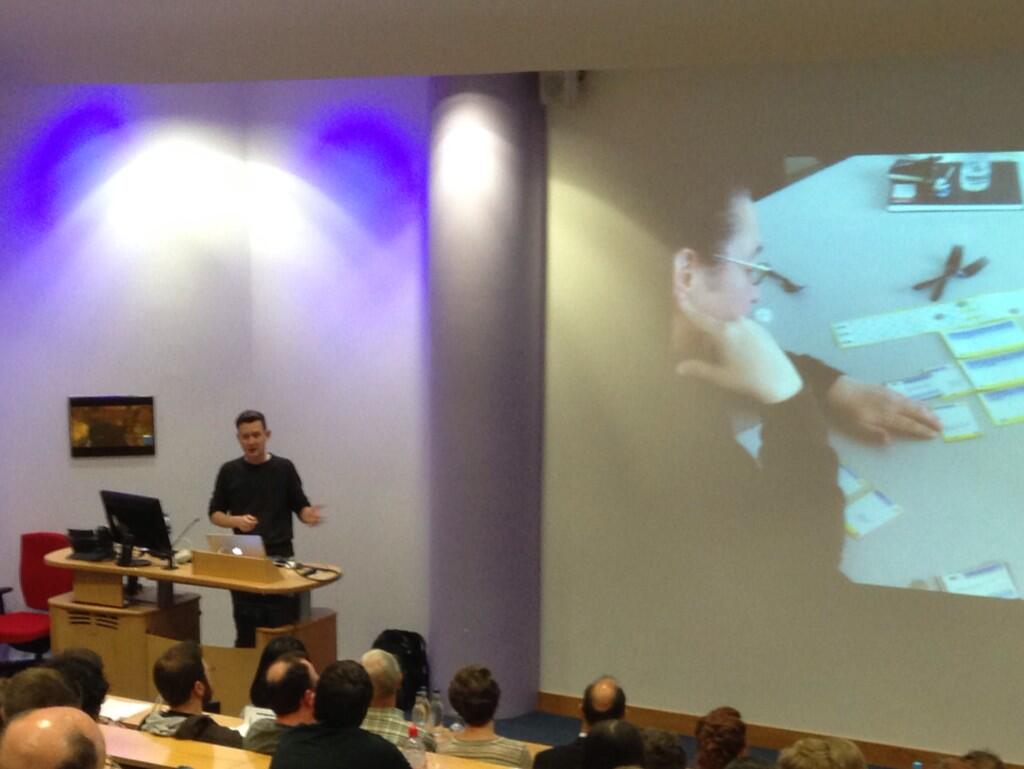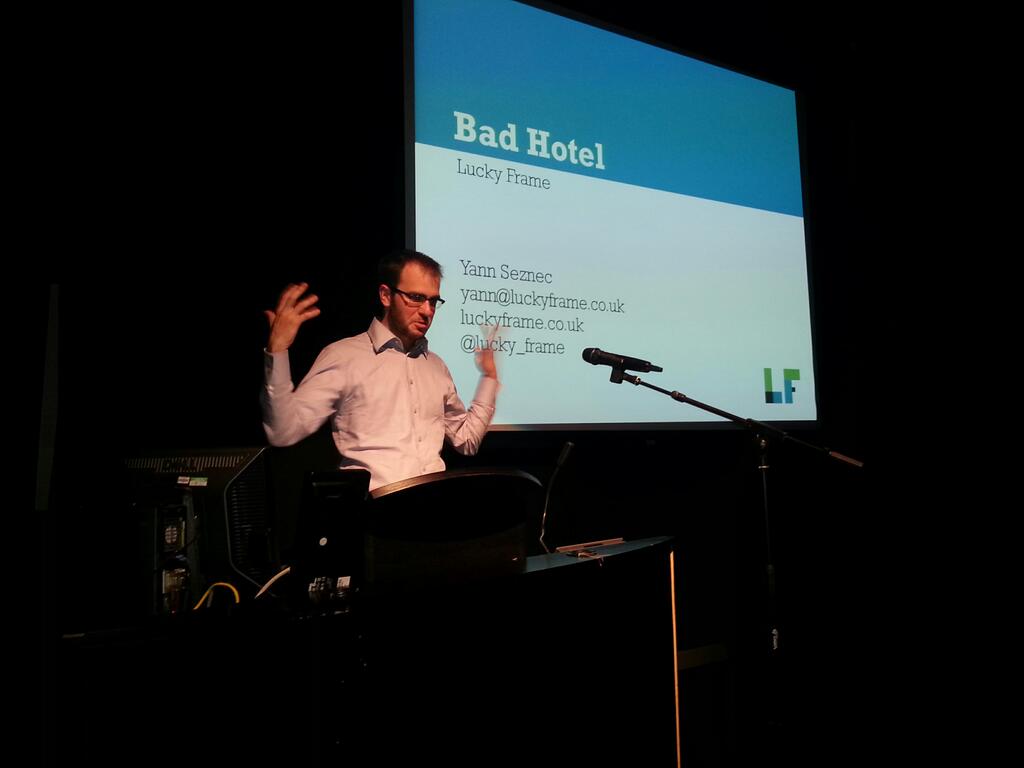In this post, IGDA Scotland volunteer Jamey Stevenson summarises the special event held on 2nd July in association with Glasgow Caledonian University in which Richard Lemarchand, former Lead Designer at Naughty Dog presented a Masterclass titled “Life of Play, Life of the Mind: What Game Design Can Teach Us”.
Earlier this month, Glasgow Caledonian University played host to game industry veteran Richard Lemarchand, who delivered an articulate and enlightening masterclass, presented in partnership with IGDA Scotland. The event garnered a huge turnout; the GCU lecture hall in which it was held was packed to the rafters with enthusiastic attendees. Judging from the quick survey conducted by Richard at the start of his talk, it was also quite a diverse audience – one that included educators, students, professional developers, and hobbyists alike.
For those familiar with Richard’s background, it will perhaps come as no surprise that the crowd he draws is such a heterogeneous group. Professional game makers often talk about “bridging the divide” between industry and academia, and it seems that the perceived gulf between the two camps can often appear equally daunting from either side. But Richard’s own journey has now taken him across that gap and found him not only surviving the transition, but loving every minute it. Whether as Lead Designer of the acclaimed Uncharted series at Naughty Dog, or in his current position as a Professor of Game Design at the venerable USC interactive media program, Richard has managed to achieve success on both sides of the purported industry/academia boundary, seemingly with with minimal hand-wringing along the way.

One of the recurring themes of Richard’s talk was the benefit of being “interested in everything”, and how maintaining an abiding spirit of curiosity can serve to enrich one’s life. He identified this same open-minded, exploratory approach to the world as an essential skill for game designers to cultivate. The overarching subject of the presentation was the many ways in which the skills that had proven most essential to Richard’s evolution as a game designer were also highly applicable to his current role as a teacher. This topic was illustrated via a personal tour of Richard’s career, from his enduring fascination with indie and art games, to his role in shaping AAA blockbusters, and an intriguing glimpse into the methods used to teach game design at USC.
Despite the fact that his message included many pearls of wisdom for both aspiring and experienced game developers, the underlying basis for the talk was much more humanistic. While the notion of a “Masterclass” might have easily been misconstrued to imply a sort of forbidding, “elites only” mentality, the atmosphere that Richard created could not have been more warm and inviting. Throughout the talk, he displayed a readily apparent knack for conveying information with a tone that was inclusive enough to accommodate those with little more than passing knowledge of digital games. It was enough to make me envious of his students!
In keeping with his holistic approach to games and learning, the mix of concepts Richard covered was incredibly expansive: everything from homebrew and zine culture, Fluxus, flow, playtesting and prototoyping was included in the discussion. There were far too many compelling ideas whirling around to be listed here, but a few other personal highlights included:
- Finding out what books constitute the “core texts” of the USC program: Game Design Workshop and Rules of Play, certainly a solid foundation for teaching design fundamentals
- Hearing Richard’s take on the most useful subjects for game designers to study (systems design and human psychology got shout outs)
- Richard’s pragmatic, thoughtful stances on recurring debates like whether games are art and whether it’s truly possible to teach creative skills like game design (short answer: yes to both, but with a lot of nuance)
- The similarities between being a teacher and a Dungeon Master
- The concept of “vulnerability” in Uncharted, and how it informed Richard’s teaching style
Overall, it was a highly informative and engaging lecture from the newly graduated Doctor Lemarchand. Please join us in congratulating Richard on receipt of an Honorary Degree of Doctor of Technology from Glasgow Caledonian University. We’d also like express our thanks to GCU for their assistance arranging this special appearance from such a talented speaker. Those who didn’t attend definitely missed out on something special. But don’t fret! Video of the session is expected to be available shortly, and there are plenty more great events coming your way in the near future courtesy of IGDA Scotland, so keep watching this space.


